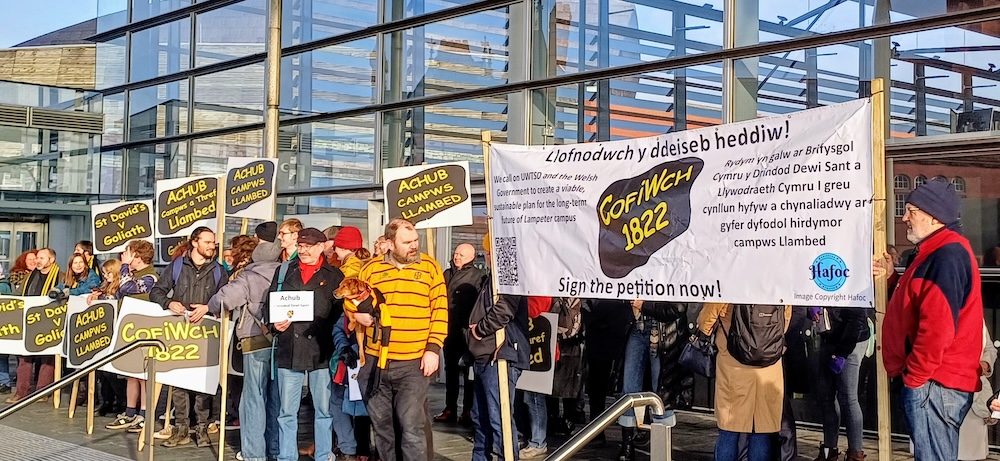Principality Building Society’s Tony Smith discusses the role of business in tackling Wales’ social mobility challenge.
As we speed into the second quarter of the 21st century, it’s hard to believe that in one of the world’s oldest democracies, a person’s future is still so heavily shaped by the lottery of birth. Or that in a world buzzing with talk of digital transformation, inclusion and opportunity, about competing and thriving as a nation, nearly a third of Welsh children are still trapped in poverty.
This isn’t just a blip on the radar; it’s a grim reality. Around 21% of people in Wales live in poverty, the highest in the UK. For children, it’s even worse: one in three grows up in poverty, rising to nearly 40% in some communities ranked among the most deprived in Europe.
The challenges are stark. The attainment gap between disadvantaged pupils and their peers remains wide, and it only gets worse as they progress through school. By GCSE level, disadvantaged students are, on average, 18 months behind their peers.
And for young people from these backgrounds, the barriers don’t stop there. The Sutton Trust highlights that even those who show academic promise are far less likely to access higher education or professional careers compared to their more advantaged peers. The odds are stacked against them.
These statistics aren’t just numbers: they represent untapped potential and a loss for our society. In an era when digital advancement and global connectivity promise so much, how can we justify consigning so many young people to lives of limited opportunity?
Innovative. Informed. Independent.
Your support can help us make Wales better.
It’s a crisis. But not one without solutions.
The persistent grip of poverty on Wales’ most vulnerable communities is being tackled, not just through policy, but by an unlikely champion: business.
With the highest percentage of small businesses than anywhere else in the UK, Wales is the home of the entrepreneurial spirit. Together with financial services companies, like ours, businesses are emerging as pivotal players in shaping futures. Tackling social mobility doesn’t just create a level playing field; it reimagines the game. Why shouldn’t Wales, with its small, connected population and legislative agility, become a pioneer in building a socially mobile, entrepreneurial society?
In an era when digital advancement and global connectivity promise so much, how can we justify consigning so many young people to lives of limited opportunity?
The fight for social mobility goes beyond the basics of fairness. If Wales is going to thrive in the decades ahead, we need to unlock the potential of every individual. Studies show that even small gains in social mobility could inject billions into the UK economy. More than that – it’s about dignity, ambition and making sure your birthplace doesn’t dictate your future.
What can we do? It starts with investing in young people, in their education, their confidence and their skills. This is where organisations like building societies, rooted in the principle of creating social value, can make a real difference.
Building societies have a remarkable history. Back in the 18th century, groups of working people came together to pool their resources and build homes, not for profit, but for each other. These weren’t faceless financial institutions; they were communities helping each other to rise. Today, that same spirit of mutuality is alive and well.
Unlike banks, building societies are owned by their members, not shareholders. This means they can balance the long-term wellbeing of the community with shorter-term profit. Whether it’s helping people buy their first home, funding targeted education programmes for underserved young people, or actively supporting local groups and initiatives, building societies are uniquely positioned to drive real and lasting change.
Recent UK Government moves to support mutual organisations highlight their growing importance. As policymakers start to see the value of mutuals in tackling society’s toughest challenges, building societies are ready to take the lead.
Paul Polman (former CEO of Unilever and social impact commentator) said: “Businesses cannot succeed in societies that fail.” This idea hits home in Wales. Tackling social mobility isn’t altruism, it’s actually an investment in future generations and in the future of our nation.
Robust debate and agenda-setting research.
Support Wales’ leading independent think tank.
Businesses are waking up to the fact that their success is tied to the health of the communities they serve. And they’re stepping up. Take financial literacy programmes for example, they’re not just teaching budgeting; they’re giving young people the tools to think smarter about money, identify and seize opportunities and dream big.
Wales has a one-of-a-kind chance to lead the way. The Well-being of Future Generations Act lays out a strong plan for change, aiming to make Wales more equal, prosperous and connected – a vision of the future we all want. And it’s time to step up. We need everyone on board: policymakers prioritising education reform, organisations finding creative ways to deliver change and businesses focusing on long-term impact, not just quick wins.
And what about the rest of us? We should consistently be pushing for better, from our leaders, our institutions and ourselves. That’s why we joined forces with the Future Generations Commissioner, Blake Morgan LLP and CEIC Cardiff Metropolitan University to create the Social Value in Business Conference. It’s a platform to spark conversations, share ideas, and turn insight into action, bringing businesses together to work towards a shared goal of creating bigger, bolder impact.
At Principality Building Society, we’re proud to put 3% of our pre-tax profits into initiatives that make a real difference, empowering communities and tackling poverty head-on. By teaming up with partners like Young Enterprise, 2B Enterprising, Team Wales, Business In The Community and The Social Mobility Foundation, we’re running programmes that give young people the financial know-how, entrepreneurial skills and the confidence to chase their dreams.
This idea hits home in Wales. Tackling social mobility isn’t altruism, it’s actually an investment in future generations and in the future of our nation.
And it’s working. Financial and enterprise education doesn’t just teach money management to help young people avoid debt, but it also opens their minds to new possibilities, helping them think smart about money, seize opportunities and aim high.
The Wales we want is a nation where every young person is equipped with the skills they need for tomorrow’s jobs. Where no child grows up believing poverty is their future. This isn’t just wishful thinking – it’s a goal we can achieve if we have the courage to go for it.
Social mobility isn’t just the right thing to do; it’s something we all need to take on together and to start here – and start now. Let’s be the generation that breaks the cycle of poverty in Wales. Together, we can create a future where every young person, no matter where they come from, has a fair shot at success. No one left out, no one left behind.
Let’s make it happen and make it our legacy.
All articles published on the welsh agenda are subject to IWA’s disclaimer. If you want to support our work tackling Wales’ key challenges, consider becoming a member.





